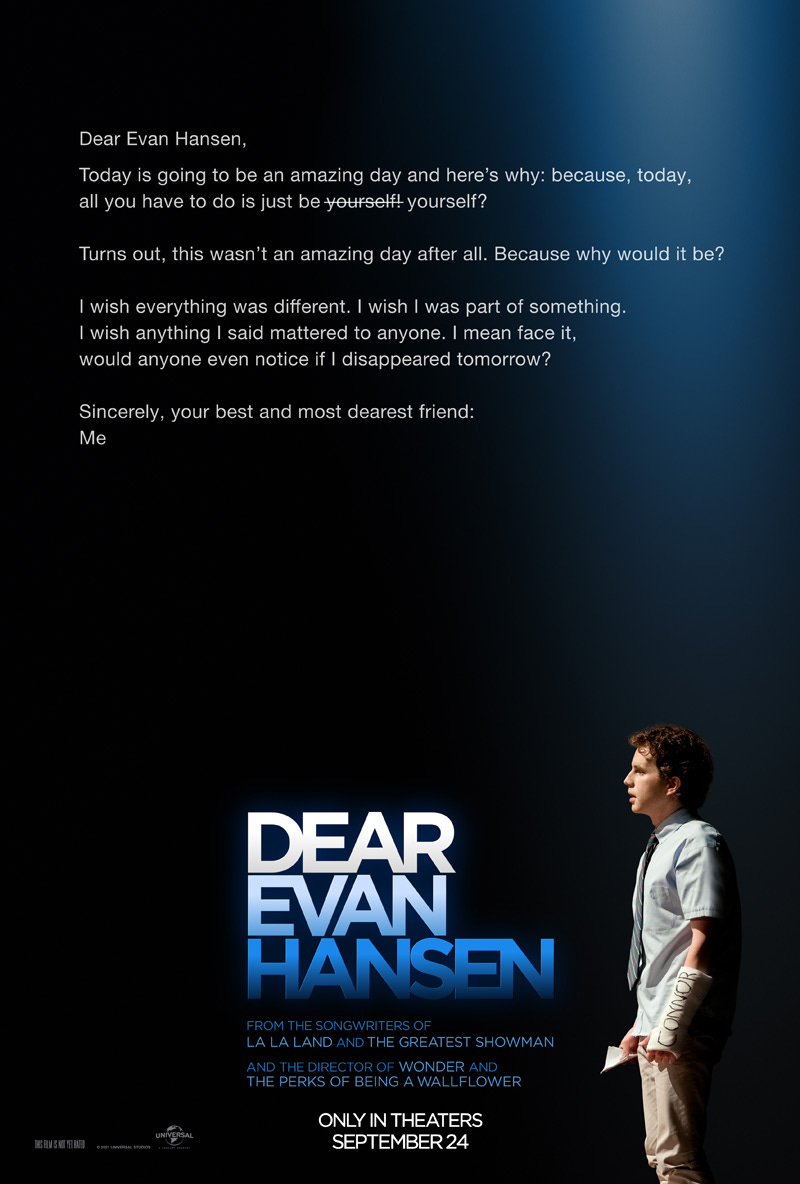Without giving away the twist, and without having seen the original Broadway or any stage production, Dear Evan Hansen elicits a range of emotions. The imperfect movie runs long for a stretch. It’s an earnest movie about living a lie which is loaded with powerful music, songs and scenes. Casting is excellent. Julianne Moore, leading man Ben Platt and Amy Adams—and this goes for everyone in the cast—are outstanding.
In layers, Dear Evan Hansen starts right in with an emotional wallop, enveloping the audience in the daily alienation, loneliness and self-doubt of youth. Songs by the songwriters for The Greatest Showman and La La Land, with good acting, screenwriting and direction, narrate life’s innermost problems ranging from grief to depression and anxiety, seriously touching upon suicide, sickness and losing a child.
This is why Dear Evan Hansen works, especially in the first two acts. The hook is a whopper of a lie told by the title character (Platt), whose nurse mother (Moore) isn’t …
Keep reading with a 7-day free trial
Subscribe to Autonomia to keep reading this post and get 7 days of free access to the full post archives.




